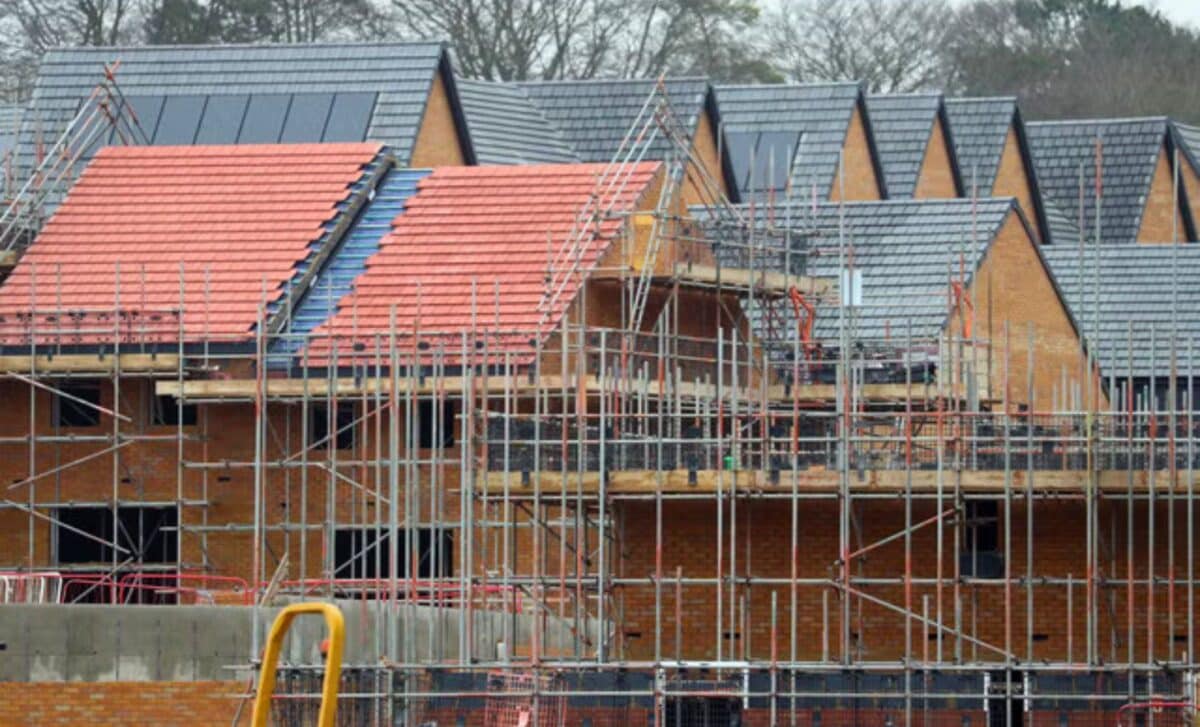The UK’s competition watchdog has launched an investigation into eight housebuilders after it found signs they may be sharing commercially sensitive information that could affect house prices.
The CMA began an investigation into the largest operators in the sector after discovering evidence that some were disclosing confidential information, such as sales prices and buyer incentives. Such behaviour “prevented and distorted” market competition and could influence decisions on price levels and the pace of new house building.
Housebuilders Anticompetitive Practices and Undersupply
The Competition and Markets Authority’s (CMA) year-long investigation into the housing industry revealed ‘fundamental concerns’ about anticompetitive practices and barriers to increasing the housing supply.
Despite the government’s aim to build 300,000 homes annually by the mid-2020s, only 250,000 were built last year, and this number is expected to decrease significantly this year.
Many local planning departments lack resources, clear targets or housing incentives. Additionally, developers face long and unpredictable planning processes, which disproportionately affect small and mid-sized companies.
Housebuilders often prioritize speculative private development over providing affordable housing where it is needed, resulting in a focus on building at a rate that enables sales without price cuts.
Higher Profits Than Expected and Dubious Quality
The CMA found that the 11 largest housebuilders were making profits that were higher than would be expected in a well-functioning market. A curb on these profits could have the effect of reducing house building and exacerbating supply problems.
The report also criticized some developers for the quality of their homes, with many buyers facing over a dozen problems after purchase and weeks or months to fix them; a “sizeable minority” had serious problems such as collapsing staircases or ceilings.
The inquiry is investigating alleged breaches of competition law in the sharing of non-public data between Barratt, Bellway, Berkeley, Bloor Homes, Persimmon, Redrow, Taylor Wimpey and Vistry.
However, the CMA has not concluded whether any laws have been broken. To address these issues, the CMA has recommended the implementation of a new homes’ ombudsman, with local councils taking over new housing estate amenities that are currently subject to unclear and high private charges.
How Will This Affect Homebuyers ?
If proven, an agreement between the UK’s major housebuilders to share non-public information could have a significant impact on homebuyers. By sharing the information on sales prices, housebuilders may be able to keep prices artificially high.
As the eight major housebuilders control a large share of the construction of new houses, they have a considerable influence on the market. To prevent undercutting on pricing and reduce competitive pressure to lower prices for buyers, coordination is necessary. Homebuyers may find themselves paying more than they should in a properly functioning market.
Ultimately, this investigation by the Competition and Markets Authority serves as a reminder of the need for large companies in any industry to continue to act in good faith with their competitors. While allegations have been made, the truth remains to be established through a careful examination of the facts.









